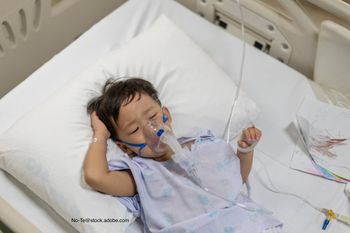
Biomarkers can predict community-acquired pneumonia (CAP) severity in adults. A new study looks at whether they can do the same in pediatric cases.
Ms. Hester is Content Specialist with Contemporary OB/GYN and Contemporary Pediatrics.

Biomarkers can predict community-acquired pneumonia (CAP) severity in adults. A new study looks at whether they can do the same in pediatric cases.

Distracted driving and an adolescent driver can be recipe for disaster, and laws have been enacted to cut down on distracted driving. A new study asks whether these laws are actually effective.

A new study examines whether dexrazoxane provides cardiac protection in pediatric patients with acute myeloid leukemia (AML).

New research shows that a mother’s mental illness can impact their child’s completion of recommended vaccinations.

Standing orders have a positive impact on vaccination rates. However, a new study indicates that some doctors aren’t using them for a variety of reasons.

A new study examines whether a high dose of vitamin D during pregnancy improves the bone health of offspring.

COVID-19 can lead to severe illness in patients with underlying health conditions. A research letter indicates that children who have pediatric cancer may not be at risk of more serious disease.
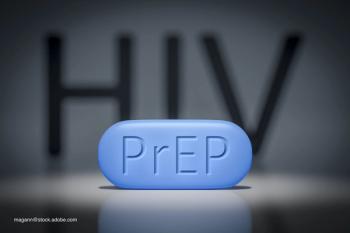
Human immunodeficiency virus (HIV) disproportionately impacts adolescents and young adults, but too few use Preexposure prophylaxis (PrEP). A review in JAMA Pediatrics examines the current status of PrEP among teenagers.
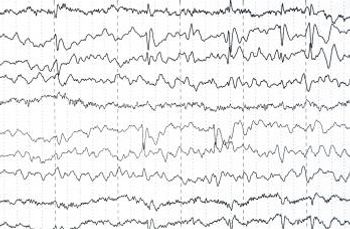
Many hospitals see pediatric patients who present with seizures in the emergency department, but a majority of cases that require admission are transferred to other facilities.

Children with mental health disorders are visiting emergency departments (EDs) at increasing rates. A new study looks at whether the EDs can provide optimal care.

Autodialer centralized reminder and recall messages have been used to improve the rate of childhood vaccination. A new study examines whether they could improve human papillomavirus (HPV) vaccination rates as well.

Pathological gaming has become an increasing concern as more technology ends up in the hands of teenagers. A new study looks at the incidence and effects of compulsive gaming in teenagers over time.
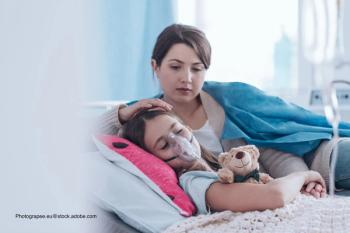
The Centers for Disease Control and Prevention (CDC) has released an advisory for the newest issue in pediatric COVID-19 cases: multisystem inflammatory syndrome in children (MIS-C).

Teenagers like to spend time in the sun and even engage in tanning, in spite of warnings about skin cancer and aging. A new study indicates that using technology could help change adolescent minds.

COVID-19 has led to many changes in health care, including how children receive care. A new report from the Centers for Disease Control and Prevention examines how these changes have impacted vaccination.
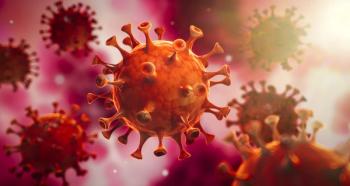
COVID-19 had previously appeared to lead to a mild disease course in children, but recent news has altered that view. A new study looked at severe complications of the disease in children.

Adverse events in childhood have a lifelong impact. A new study provides more evidence of negative cardiovascular outcomes.

Clinical trials have led to many improvements in pediatric cancer survival rates. However, a new study finds that enrollment rates in clinical trials are on the decline.

Being born very preterm (VPT) carries a number of increased risks. A new study looks at the increased risks of developing mental health disorders among children born VPR).

Medicaid coverage provides essential care during pregnancy. Expansion of the program can impact the number of poor mothers who have no health insurance.

Encephalitis may lead to neurologic morbidity and mortality in children. Early etiologic diagnosis is important to improving outcomes.

A new report from Centers for Disease Control and Prevention’s National Center for Health Statistics examines adolescent sexual activity and contraception use.

Past studies have shown COVID-19 to be milder in children. However, there have been a growing number of children in New York City and Long Island in New York who have developed a multisystem inflammatory syndrome as a result of the disease.

Current US vaccine policy recommends that children receive 2 influenza vaccine doses during their first influenza season. A new study indicates that this helps reduce influenza burden among the vulnerable population.

Long recommended to improve health outcomes in infants, tummy time may have other positive health benefits, according to a new literature review.
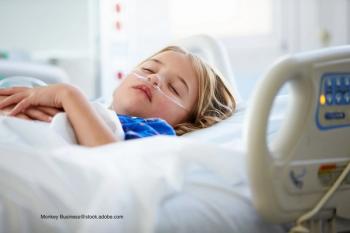
Improving care and tackling the cost of care have been the biggest challenges in health care. A new study examines if improvement initiatives also have potential financial benefits.

Schools have closed for the academic year, but in preparation for the fall term the American Academy of Pediatrics (AAP) has offered guidance on what to consider before schools reopen.

The first large-scale study of pediatric sedation examines the major trends in outpatient procedural sedation.

Suicide in children and adolescents is a serious public health problem. Researchers looked at one way to help reverse current trends.

Children who have acute lymphoblastic leukemia (ALL) can reduce their risk of infection by consuming a diet rich in fruits and vegetable, according to a new 2-year cohort study.